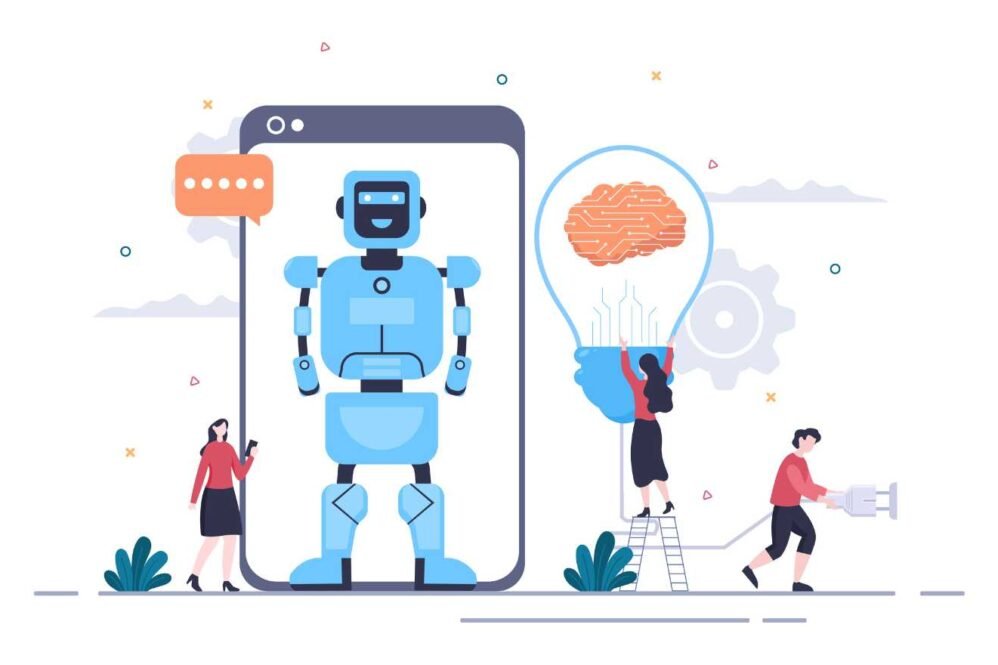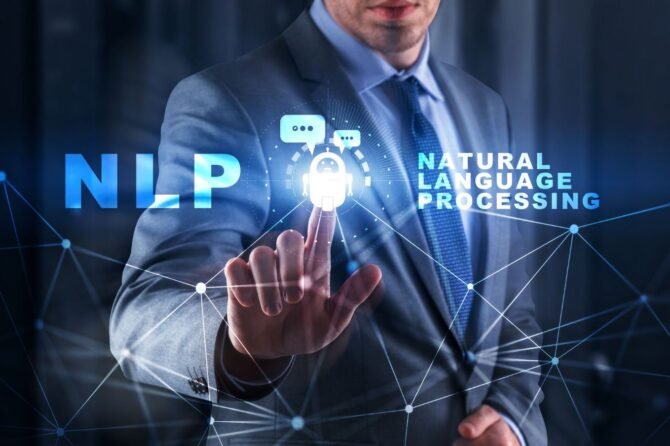Table of Contents
Automate, Optimize, Elevate … AI for Freelancers
The role of artificial intelligence (AI) is rapidly expanding in today’s world. AI refers to computer systems that can perform tasks normally requiring human intelligence, such as visual perception, speech recognition, and decision-making. As AI capabilities advance, this technology is being incorporated into more industries and professions.
Freelancers, independent contractors, and solopreneurs stand to be greatly impacted by AI. Many routine tasks carried out by freelancers could potentially be automated by AI. While this may seem threatening, AI also presents new opportunities for freelancers to enhance their services and operate more efficiently. Adopting AI for freelancers can help you grow your freelancing businesses in the digital age.
This article will explore the growing role of AI for freelancers. We’ll look at AI writing tools, graphic design programs, virtual customer service agents, accounting software, legal tech, and more. The benefits of AI adoption will be weighed against potential challenges. By understanding both aspects, freelancers can make informed decisions about integrating AI into their work.

Overall, AI promises to transform the freelance landscape. Whether providing writing assistance, design expertise, administrative support, or analytical insights, AI has emerged as an invaluable partner. Embracing these new technologies will be key for freelancers wanting to stay competitive and meet evolving client demands in the AI-driven future.
AI for Freelancers in Writing Assistants
One of the most exciting AI developments for freelancers is automated writing assistants. Tools like Jasper, Jarvis, and Copysmith leverage natural language processing to generate written content on demand. This can help freelance writers produce more content in less time by providing an initial draft to build upon.
Jasper and Jarvis function like advanced autocomplete tools that learn your writing style. You provide a headline, topic keywords, tone of voice, and length, and the AI generates unique articles or blog posts. The output isn’t perfect, but it provides a solid starting point that requires far less effort than writing from scratch. These tools are excellent for producing SEO-optimized content quickly.
Copysmith focuses more on long-form writing like ebooks, guides, and whitepapers. It can digest research and notes you provide to craft coherent, on-brand manuscripts. The AI handles the heavy lifting of structuring content and transforming bullet points into paragraphs. This leaves you to refine the manuscript, fact-check, and add your own insights.
For freelance writers, AI assistants increase efficiency, reduce fatigue from constant writing, and enable higher output and earnings. They augment rather than replace human creativity and skill. However, it’s essential to carefully review and edit AI-generated content before publishing. With the right human oversight, writing assistants help freelancers scale their businesses.
AI for Freelancers in Design Tools
Artificial intelligence is revolutionizing design workflows for freelancers. AI-powered design tools like Canva and Designs.ai allow non-designers to easily create stunning graphics, presentations, and more.
Canva is a graphic design platform that makes design simple for non-designers. It provides templates for creating social media posts, presentations, posters, videos, logos, and more. Canva simplifies design by handling technical aspects like photo editing, color schemes, fonts, and layouts. Users can drag and drop to create beautiful designs in minutes.
Designs.ai takes things a step further by generating unique designs with just a text prompt. Users describe what they want, and AI generates countless fresh design options. Designers can further refine selections using an intuitive editor. This allows anyone to create professional graphics and illustrations tailored to their needs.
Other AI design tools like Placeit and Depositphotos utilize artificial intelligence to auto-remove image backgrounds and insert media into templates. These time-saving AI capabilities allow freelancers to produce high-quality graphic design work faster than ever before.
The democratization of design through AI is a game-changer for non-designer freelancers. Tasks that previously required specialized skills or hiring a graphic designer can now be handled independently. AI design tools expand creative possibilities for all freelancers and entrepreneurs.
AI for Freelancers in Customer Service
Artificial intelligence is transforming customer service for freelancers and small businesses. AI-powered chatbots and voice bots are allowing solo entrepreneurs and microbusinesses to provide 24/7 automated customer support without the need to hire a dedicated service team.
Chatbots can be integrated into messaging apps, websites, and social media to provide instant responses to common customer inquiries. They leverage natural language processing to understand questions and provide relevant answers by referencing a knowledge base. Over time, chatbots become smarter through machine learning, improving their ability to have natural conversations.
Popular chatbot platforms like Chatfuel, Flow XO, and ManyChat make it easy to create bots without coding. Freelancers can design conversational flows, train the bot, and customize responses. Bots can handle common queries about products, services, orders, shipping, returns, and more. They can also escalate complex issues to a human agent.
Voice bots take customer service a step further by offering phone-based support. Tools like Conversica allow freelancers to build intelligent virtual assistants that interact conversationally via voice calls or voicemail messages. This provides customers with an intuitive self-service experience similar to speaking with a human.
The benefit of AI bots is providing instant, personalized, and consistent customer support at all hours. This removes the burden of manually staffing service inquiries for solopreneurs and microbusiness owners. It also frees up their time to focus on higher-value and revenue-generating tasks. As AI for freelancers capabilities continue to advance, automated bots will become even better at delivering empathetic and human-like assistance.
AI for Freelancers in Accounting
Artificial intelligence is transforming accounting and bookkeeping for freelancers in major ways. With AI-powered software, freelancers can automate many of the tedious financial tasks that used to require manual work.
One key area is automating bookkeeping and tracking income and expenses. Apps like Xendoo allow freelancers to connect bank accounts, categorize transactions, and generate financial reports with minimal effort. The software can track invoices, expenses, profit and loss statements, and other key financial data automatically. This saves freelancers countless hours compared to manually entering and categorizing every transaction.
Some AI accounting platforms like Botkeeper offer small business owners a dedicated bookkeeper powered by AI. This hybrid human + software solution handles tasks like reconciling accounts, preparing financial statements, and dealing with questions. The AI handles routine bookkeeping while human accountants deal with higher-level strategic issues.
Invoicing and payments are another area where AI excels. Apps like Hiveage provide easy online invoicing with options to accept credit cards and get paid faster. The platform can automate reminders for overdue invoices, provide payment tracking, and generate accounting reports. This eliminates the need for freelancers to manually create, send, and track invoices.
Overall, AI and automation enable freelancers to save significant time on bookkeeping and accounting tasks. This allows them to focus their energy on other high-value areas of their business. As AI for freelancers in accounting software improves, expect even more benefits like personalized insights, forecasting, and tax preparation automation.
AI for Freelancers in Legal Services
Artificial intelligence is transforming legal services for freelancers in exciting ways. AI-powered tools can review contracts, automate discovery, and assist with legal research.
Contract review is one of the most tedious aspects of legal work. AI tools like LawGeex use algorithms to review contracts in seconds, freeing up lawyers’ time for higher-value work. These tools identify issues, risks, and missing clauses in contracts to ensure optimal terms for freelancers.
For discovery, AI can automatically read and analyze large volumes of documents. This saves freelancers time and money in legal disputes by quickly surfacing relevant information. Juris, Everlaw, and Logikcull offer AI-powered discovery to find key details across emails, texts, PDFs, and more.
Research is also being enhanced by AI in the legal field. Tools like Casetext CARA and ROSS Intelligence leverage natural language processing to search caselaw and provide relevant recommendations. This allows freelancers faster access to applicable precedents and statutes when handling legal matters.
Overall, AI legal services increase efficiency and affordability for freelancers. By automating repetitive tasks, AI systems enable freelancers to get quality legal help without exorbitant costs. As the technology continues improving, freelancers can expect AI for freelancers to become an indispensable asset in navigating legal issues.
AI for Freelancers in Healthcare
Artificial intelligence is transforming healthcare for freelancers in exciting ways. Telemedicine allows freelancers to conveniently access healthcare providers virtually. This expands access to medical expertise without the need to take time off work and travel to appointments.
AI-powered preliminary diagnosis is also assisting freelancers. Symptom checker chatbots can provide likely condition guesses based on reported symptoms. While not a replacement for professional diagnosis, these tools help point people in the right direction to seek appropriate care.
More advanced diagnosis applications are being developed using machine learning. These leverage big datasets to aid in evaluating conditions based on provided information. They can help identify conditions human providers may miss or that are difficult to diagnose.
Overall, AI is making healthcare more accessible and effective for freelancers. By expanding telemedicine services and providing diagnosis assistance, freelancers can get quality care while remaining productive in their work. AI will continue opening up new possibilities in healthcare for independent workers.
Challenges of AI Adoption – AI for Freelancers
While AI tools offer many benefits for freelancers, adopting these technologies also comes with challenges. Here are some of the main hurdles freelancers may face when incorporating AI into their workflows:
Cost
Many of the most powerful AI tools and platforms can be expensive, especially for independent workers on tight budgets. The costs include not just the initial purchase or subscription fees, but also expenses for hardware upgrades, maintenance, and scaling as your needs grow. Freelancers must weigh the ROI of AI tools versus their price tag.
Training Required
Most AI programs require some degree of training and setup from the user. This could mean tagging data, inputting examples, setting parameters, or customizing the tool for your niche. While automated in function, AI still needs human supervision on the input side. This training time is an investment that delays when you can start benefiting from the technology.
Job Loss Fears
Some freelancers worry that AI will make their roles obsolete. Certain repetitive administrative or creative tasks are already being automated by AI. However, most experts believe AI will augment rather than replace human work. As long as freelancers stay adaptable and focus on high-value skills like strategy, relationships, and complex problem-solving, AI can enhance their careers rather than threaten them. Proactively learning how to utilize AI tools is key to staying ahead of the curve.
With training, an open mindset, and focusing on the benefits, freelancers can overcome these adoption challenges. AI presents more opportunities than risks for independent workers if carefully implemented. Disciplined cost-benefit analyses, skill development, and embracing, rather than fearing, automation can help freelancers thrive in the age of artificial intelligence.
Future of AI for Freelancers
The future looks bright for the increased adoption of AI tools by freelancers and solopreneurs. As the technology continues to advance rapidly, AI is predicted to become even more customizable, accessible, and beneficial for independent workers across industries.
More Natural Language Processing
Current NLP models like GPT-3 are impressive but may lack nuance. Future iterations will likely have more human-like conversations, understand the context better, and pick up on voice inflections and emotions. This will enable freelancers to communicate with AI tools as naturally as with a human assistant.
Hyper-Personalization
Freelancers will be able to customize AI tools to match their precise needs, vocabulary, writing style, design aesthetic, and personality. AI will feel like an extension of the freelancer rather than generic automation. AI tools may even replicate freelancers’ voices for content creation.
Multi-Functional AI Assistants
Instead of using many separate apps, freelancers will be able to access integrated AI platforms that seamlessly handle different tasks like administrative work, content writing, graphic design, customer service, and more. These multi-talented AI assistants will allow freelancers to efficiently scale their businesses.
Smarter Task Automation
AI will get better at determining which tasks to fully automate vs. leave to the freelancer. AI tools may track freelancers’ preferences, assess unique client needs, and know when to step in or defer based on the situation. This hybrid approach will free up freelancers to focus on high-value creative work.
The rapid pace of AI research suggests independent workers will continue gaining access to innovative tools that make their businesses more efficient, productive, and profitable. AI has immense potential to level the playing field for freelancers striving to compete and thrive.
AI for Freelancers is Truly Transforming Freelance Industry
The rapid adoption of artificial intelligence is transforming the world of freelancing and independent work. While AI unlocks exciting new opportunities, it also brings potential pitfalls that must be carefully navigated.
As we have explored, AI tools like writing assistants, design platforms, customer service bots, accounting software, legal aids, and telehealth services all aim to augment a freelancer’s capabilities. Used judiciously, AI can free up freelancers to focus on more creative, strategic, and interpersonal aspects of their work. The key is finding the right balance between automation and human ingenuity.
Rather than viewing AI as a threat that will replace human freelancers, the wise approach is to embrace AI as an empowering partner. By combining the computational strengths of AI with human creativity, freelancers can offer clients even better services. This symbiotic relationship allows humans and machines to complement each other.
Of course, integrating new technologies always involves growing pains and adjustments. Not all AI tools live up to their hype, and missteps will occur. But overall, AI for freelancers represents an exciting new frontier for freelancers to expand their skills and businesses.
The future remains uncertain, but one thing is clear: AI will shape freelancing in the years ahead. An open and proactive mindset is needed to steer these changes in a humanistic direction. By pioneering the responsible use of AI, today’s freelancers can set the stage for innovation that propagates economic opportunity rather than inequality.
The potential is astonishing if we approach it with wisdom. AI may be artificial, but the impact on freelancing will be profoundly human.




